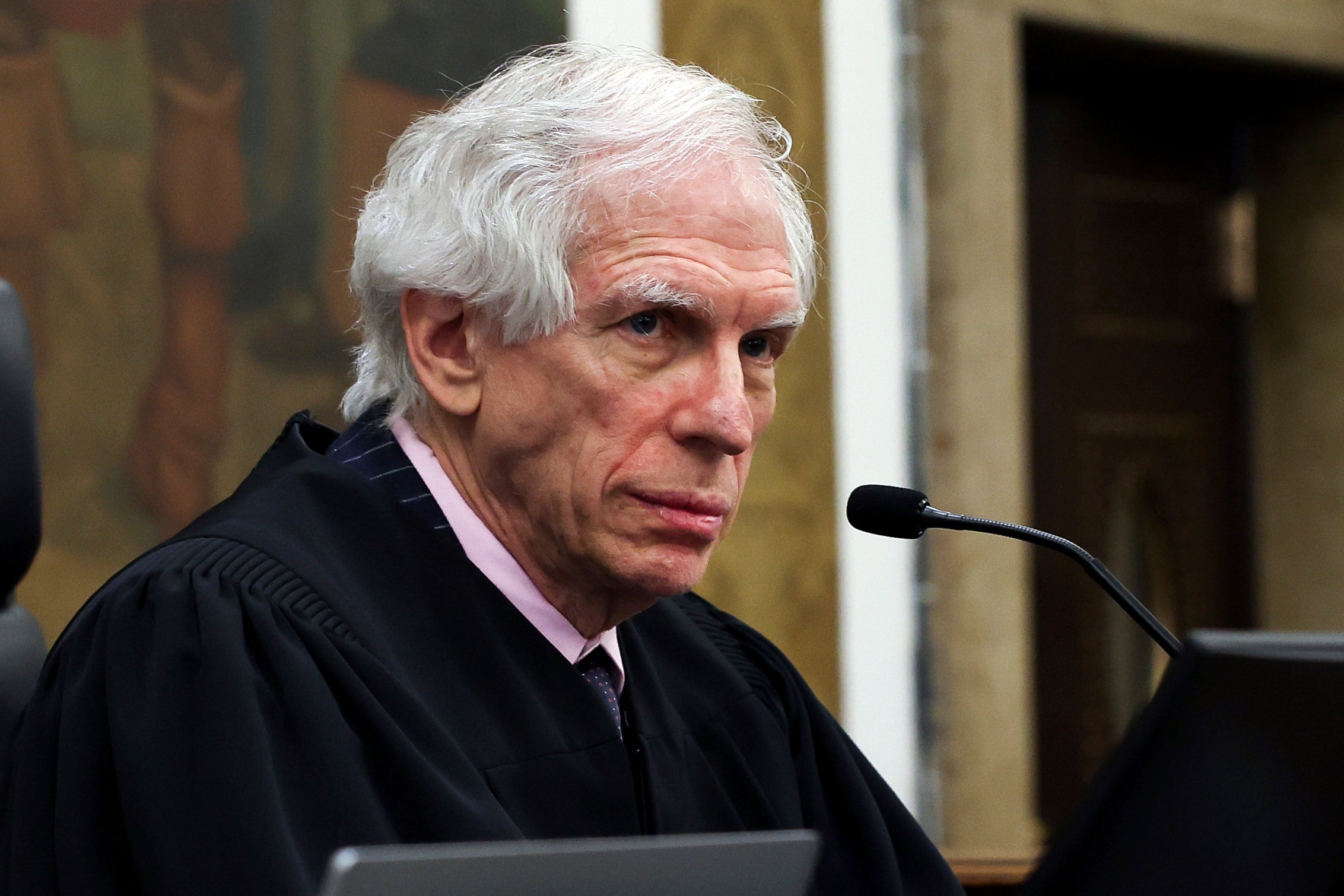Judge in Trump's civil fraud case says he won't recuse himself over 'nothingburger' encounter
The New York judge who presided over Donald Trump's civil fraud trial says he won’t step aside from the case, vehemently denying a claim that another lawyer had advised him ahead of the verdict

Your support helps us to tell the story
From reproductive rights to climate change to Big Tech, The Independent is on the ground when the story is developing. Whether it's investigating the financials of Elon Musk's pro-Trump PAC or producing our latest documentary, 'The A Word', which shines a light on the American women fighting for reproductive rights, we know how important it is to parse out the facts from the messaging.
At such a critical moment in US history, we need reporters on the ground. Your donation allows us to keep sending journalists to speak to both sides of the story.
The Independent is trusted by Americans across the entire political spectrum. And unlike many other quality news outlets, we choose not to lock Americans out of our reporting and analysis with paywalls. We believe quality journalism should be available to everyone, paid for by those who can afford it.
Your support makes all the difference.The New York judge who ordered Donald Trump to pay a nearly $500 million civil fraud judgment said Thursday he won’t step aside from the case, rebuffing concerns that the verdict was influenced by a brief conversation he had with another lawyer as a “nothingburger.”
Judge Arthur Engoron’s eight-page order came in response to Trump’s attorneys' request that he recuse himself based on a claim by real estate attorney Adam Leitman Bailey that the two had discussed the state law at the heart of the case prior to the verdict.
In the ruling, Engoron vehemently disputed the attorney’s description of their February encounter. He wrote that Bailey had accosted him in a courthouse hallway, then followed him down the stairs and onto the street while “droning on" about his interpretation of the law.
“I did not initiate, welcome, encourage, engage in, or learn from, much less enjoy, Bailey’s tirade,” Engoron wrote, adding that the “unpleasant occurrence” lasted about 90 seconds.
Bailey claimed in an interview published by NBC New York in May that he’d discussed the case with Engoron shortly before the verdict was issued and given him his take on a relevant portion of the law.
In a filing last month, an attorney for Trump, Christopher Kise, wrote that the conversation may have violated state rules around judicial communications and had created an “appearance of impropriety and tarnish the integrity of this proceeding beyond repair.”
The recusal request cited reports that the New York State Commission on Judicial Conduct had opened an inquiry into the conversation.
Engoron responded that he had not been contacted by the commission and was not aware of any investigation. Throughout the high-profile trial, the judge said he’d been frequently confronted by people on the street, in restaurants, parks, and on public transportation.
“Sometimes their unsolicited words are complimentary. Sometimes they are derogatory,” he wrote. “Never do they affect my rulings. As with my forced encounter with Bailey, I feel no need to report these fleeting incidents.”
He continued: “I would have forgotten all about it by now had Bailey not attempted to burnish his reputation as someone who could influence judges."
Neither Kise nor Bailey responded to an emailed request for comment on the judge’s decision.
Engoron ruled on Feb. 16 that Trump lied to banks, insurers and others about his wealth. He found that Trump, his company and top executives — including his sons Eric and Donald Trump Jr. — schemed for years to inflate his wealth on financial statements used to secure loans and make deals.
The judge ordered Trump to pay $355 million in penalties, but with interest the total has grown to more than $471 million — including $17.1 million that has accrued since the verdict. The sum will increase by nearly $112,000 per day until he pays, unless the verdict is overturned.
Trump posted a $175 million bond in April to halt collection of the judgment and prevent James’ office from seizing his assets while he appeals.